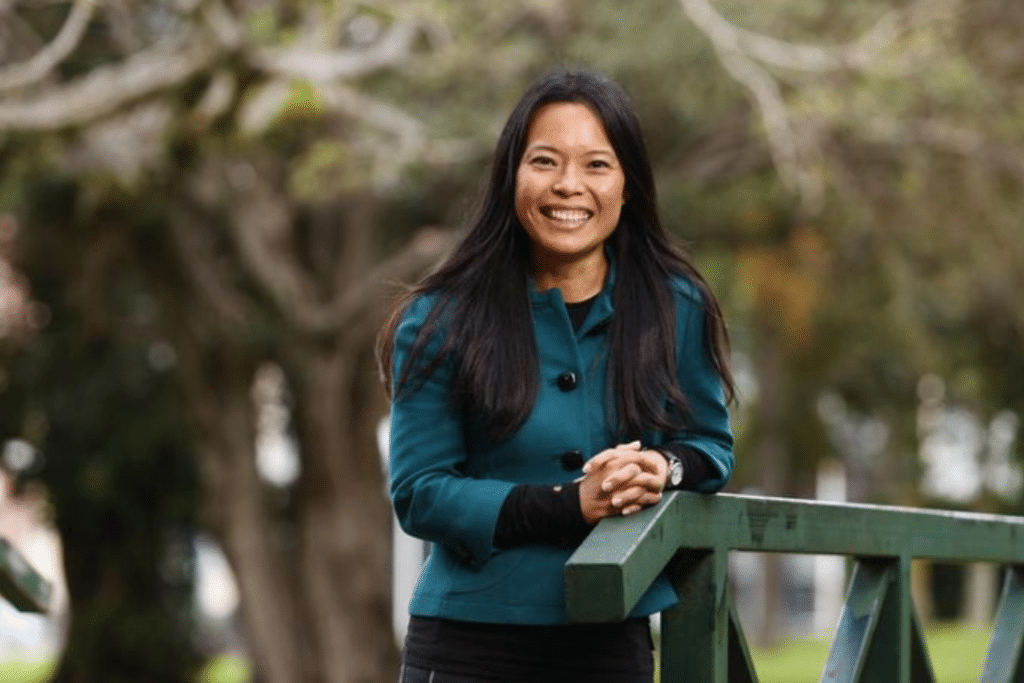International Women’s Day is a day when I often think about my maternal grandmother, my ama. She was the most remarkable woman. A widower and single mother of eight, she had to uproot her life twice, first China to Laos and then Laos to Australia.
I think about her on International Women’s Day because it hits me how different my life is compared to hers. She had so few choices, she didn’t get to choose a career or even where to live.
The last photo I have with her is on the dance floor at my wedding in Laos. After the wedding, she stayed on in Laos choosing to spend her final years there. It was one of the few choices she had an opportunity to make.
I know it’s because of her, and the sacrifices she made, that my life was possible. A world of opportunities has been unlocked for me, I have been able to make choices about what I want to study, what career I want to pursue and the choice to stand for parliament.
That’s what today is about for me, acknowledging the extraordinary work of women who have come before to ensure women today have choices.
My ama did that for me, as have so many women in the Labor movement. This is the first International Women’s Day where we have a majority female federal government, 52 percent of the Federal Labor caucus are women, and there a record 10 women in the cabinet.
This is a milestone in our country’s history that should be celebrated, it comes 12 years after we had Australia’s first female Prime Minister – Julia Gillard.
Some might sneer and say this is mere symbolism, but they are wrong. Because while people often say that all politics is personal, what’s easily missed is that all politics is ‘personnel’.
Who we have in positions of power matters. Not just for symbolic reasons, but because of the different perspectives and experiences they bring to critical issues.
That’s not to say that only women can understand women’s issues, or to eliminate the important role of empathy in our politics. However having people with lived experience or who can offer different perspectives is so valuable when crafting policies that will have such a big impact on people’s lives.
And the legacy of successive Labor Governments bears this out.
I am incredibly grateful to all the women who came before me to chart a course for a fairer deal for women in our country.
Take the Whitlam Government’s appointment of Elizabeth Reid as the world’s first adviser on women’s issues to a head of government. It wasn’t by accident that the same government went on to introduce the supporting mothers’ benefit, removed the tax from the contraceptive pill and supported the decision that led to equal pay for equal work.
Or take the many women and men from across the party and the union movement who were willing to have the bruising fight within Labor Party in the years leading up to 1994 National Conference to introduce a quota for women in winnable seats. It’s because of them that we now have so many women in our Federal Parliament, which stands in stark contrast to the Coalition where women only comprise 21 percent of their House of Representatives members and 39 percent of their Senators.
It was the Rudd-Gillard Government leading the fight against domestic violence with the first National Plan to Reduce Violence Against Women and it was that government that introduced our first Commonwealth paid parental leave scheme.
A scheme I directly benefitted from when I had my own son five years after it was introduced.
Before the scheme was introduced in 2011, we were wholly reliant on employers providing parental leave. Some had access, others didn’t and the inequity of it was glaring. At the time, Australia was the only country in the OECD alongside the United States that didn’t have a paid parental leave scheme.
It was under the leadership of Prime Minister Kevin Rudd and the Minister for Families, Housing, Community Services and Indigenous Affairs Jenny Macklin that we have a paid parental leave in place.
So it’s fitting that the first majority female federal government – the Albanese Labor Government – is building on that Labor legacy by expanding the scheme further.
Later this year, we will debate legislation to increase the scheme to cover 26 weeks of leave by 2026. The additional weeks will be fundamental to ensuring that parents and baby have time to bond.
So this International Women’s Day as I stand in our Federal Parliament as part of a majority female federal government, I am grateful to my ama and to the many Labor women who have helped me get to this point. However, I’m also acutely aware of my responsibility to those who will come after me, I have a role to play to ensure we continue to strive towards gender equality.


